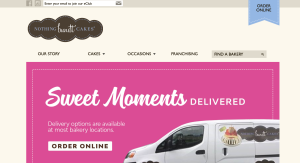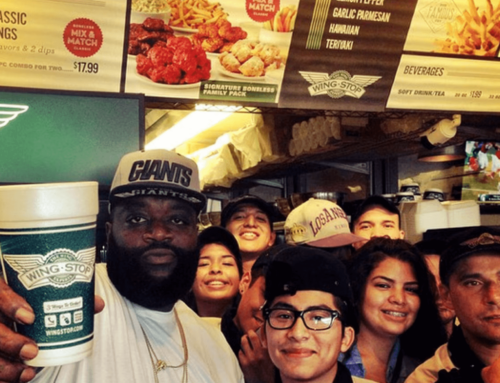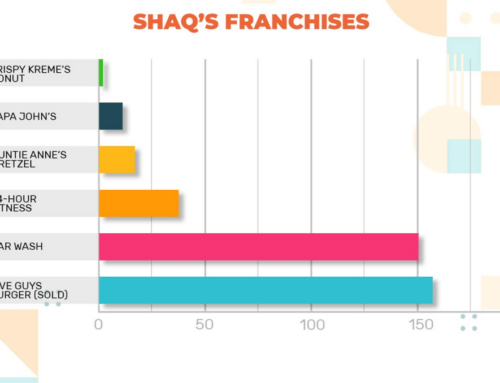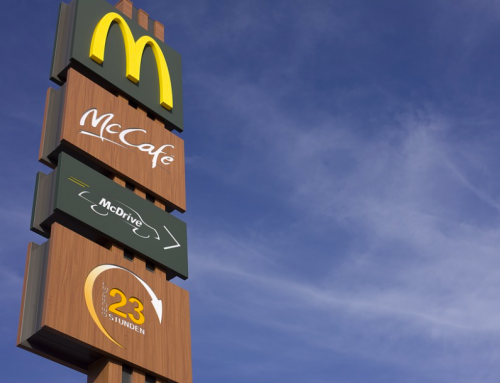Debbie Shwetz and Dena Tripp merged their kitchens in 1997 with one mission in mind: to make wonderful cakes for family and friends using authentic, high-quality recipes. The bakers realized that by collaborating together, they could transform their compassion, knowledge, and home-kitchen traditions into delectable sweets to commemorate special occasions in the lives of others they cared about.
How much will it cost to open a Nothing Bundt Cake franchise? The total investment required to open a Nothing Bundt Cakes Franchise is expected to be between $440,800 and $636,500. You’ll also be required to have a liquid capital of $150,000. You’ll need a minimum net-worth of $600,000 to qualify.
What Is The Average Salary Of A Nothing Bundt Cakes Owner?
The median salary for a Nothing Bundt Cakes owner-operator is $74,614 annually as of 2021. This estimate is significantly higher than the average baker salary of $23,000 – $43,000 per year.
Of course if you’re employed as a baker, you’ve got less risk and responsibility too. On the flip side, you have less financial upside working as an employee in the business.

Nothing Bundt Cakes official website.
Interested in my perspective of the Nothing Bundt Cakes franchise opportunity? Read my full review below. Take our 8-minute quiz to find out if Nothing Bundt Cakes is the right franchise business for you.
Financial Requirements and Fees
The following chart outlines the upfront costs associated with a Nothing Bundt Cakes franchise. Many of these are one-time expenses that must be paid in order for the franchise to be launched.
| Type of Fee | Amount |
Due By |
| Beginning Inventory | $20,100 – $23,800 | As acquired |
| Business License
and Permits |
$1,500 – $4,500 | As acquired |
| Initial Franchise
Fee |
$35,000 | Following the signing of the Franchise Agreement |
| Additional Funds-3
months |
$30,000 – $50,000 | As acquired |
| Training Expenditures | $4,000 – $7,000 | As acquired |
| Fixtures and
Equipment – Back of Bakery |
$110,000 – $125,000 | As acquired |
| Architect – Design | $9,800 – $12,500 | As acquired |
| Rent and Security
Deposit |
$6,500 – $8,500 | As acquired |
| Exterior Signage | $8,000 – $12,000 | As acquired |
| Professional Fees | $3,900 – $11,200 | As acquired |
| Point of Sale
System |
$6,000 – $11,300 | As acquired |
| Opening
Advertising Expenses |
$5,000 – $7,000 | As acquired |
| Insurance | $2,800 – $5,500 | As acquired |
| Delivery Vehicle-
Monthly lease or loan payment |
$13,200 – $33,200 | As acquired |
| Fixtures and
Equipment – Front of Bakery |
$30,000 – $40,000 | As acquired |
| Bakery
Improvements |
$155,000 – $240,000 | As acquired |
| ESTIMATED TOTAL INITIAL INVESTMENT | $440,800 – $636,500 |
Financial Requirements
Franchisees and their partners must have a net worth of $600,000 and a cumulative liquid capital of at least $150,000 to financially qualify for this franchise. Here’s a detailed break-down of the fees required to invest in a Nothing Bundt Cake location.
|
Requirement |
Fee |
| Liquid Capital | $150,000 |
| Net Worth | $600,000 |
| Total Investment | $440,800 – $636,500 |
| Franchise fee | $35,000 |
Owning a Nothing Bundt Cakes Franchise also requires the following ongoing fees. These are fees you’ll need to pay each month for the privilege of operating the franchise:
|
Ongoing Fee |
Percentage |
From |
| Marketing Production Fund |
1% |
Weekly net revenue of the bakery |
| Local Advertising Fee |
3% |
Weekly net revenue of the bakery |
| Royalty |
5% |
Weekly net revenue of the bakery |
How Much Profit Does Nothing Bundt Cakes Franchisees Make Per Year?
Company revenue/sales per year: For the fiscal year ending 2020, Nothing Bundt Cakes system-wide sales were at $435,354,095 with a sales growth percentage of 23.8%.
Number of units: Nothing Bundt Cakes has 374 units as of 2021.
Average Gross Revenue Per Store: $435,354,095 (System-wide sales) ÷ 374 units = $1,164,048.34. This means you can expect to gross about $1.1 million in revenue per unit.
Industry Average Profit Margin: While I don’t know the profit margin of a Nothing Bundt Cakes location, I can use other food businesses in the industry to make an estimate.
Related Reading: How Much Does it Cost to Buy a Starbucks Franchise?
The average profit margin for the specialty foods stores industry is at 48.8% last year. Some of the most profitable bakeries yield a profit close to 20%.
Projected Annual Profit Per Store: Expect to make a net profit between $232,829 and $465,619. I think it’s a safe bet that the profit margin of Nothing Bundt Cakes would fall somewhere between 20% – 40% using industry comps.

Nothing Bundt Cakes SWOT Analysis
Nothing Bundt Cakes is a popular specialty bakery with over 300 locations across the United States. Their specialization is delivering a dessert with a unique presentation and flavor. Nothing Bundt Cakes competes by providing one-of-a-kind treats that anyone can afford.
Nothing Bundt Cakes is a franchise concept unlike any other. Guests are frequently startled to learn that their bakeries are franchise opportunities. That’s because the shops have a real “Mom and Pop” vibe to them, which addresses a major franchising issue of being a cookie cutter establishment with a lack of personality. With their good work atmosphere and family-friendly work schedules, Nothing Bundt Cakes also presents a unique opportunity to its franchise owners.

A Happy Birthday Bundt Cake.
Strengths
- Modest organizational structure. Unlike other companies, Nothing Bundt Cakes has a small and uncomplicated organizational structure. Whereas there are about 6 -10 people before you get from the corporate management to its employees, Nothing Bundt Cakes only has 3. Yes, you read that right. From the corporate management, you only have the bakery owners and managers, the assistant manager, and the shift leads then employees. This uncomplicated setup benefits the company’s overall operations since it doesn’t have to go through a lot of corporate hierarchy slowing down productivity. A basic organizational setup such as Nothing Bundt Cakes’ creates a more harmonious relationship between management and its employees since it diminishes the bureaucracy between the two groups. In other words, there’s not much red tape.
- Good internal communication. Nothing Bundt Cakes holds face-to-face meetings each quarter at a minimum. The manager sends essential emails to each employee in order to convey essential company announcements. Each store also has a built-in whiteboard or cork bulletin near the manager’s desk for everyone to communicate internally each day. Nothing Bundt Cake has an open door communication policy.
- Work shifts. Each Nothing Bundt Cakes store performs web-based shift scheduling as well as a shift duty list, which keeps track of everyday tasks for each employee. The onboarding program for new employees is straight forward due to the limited menu of Nothing Bundt Cakes. In a competitive labor market like we’re seeing right now, it’s a major advantage to have a concept that can get employees trained up and productive quickly.
Weaknesses
- Nothing Bundt Cakes email address. Though this seems to be not much of a big deal, though, for some employees, it does. Apparently, only managers of Nothing Bundt Cakes carry the company name in their email addresses. Other than having an identity of working for this popular bakery shop, leaving employees out from the company email address can drive a wedge between the management and its employees as it creates a feeling of being left out instead of having a sense of belongingness with the place they are working for. Of course this makes sense, since most employees won’t have a need to have a business email address.
Related Reading: Is the Circle K Franchise Cost Too High in 2022?
- Promotional blunder. Nothing Bundt Cakes implemented a promotional endeavor wherein customers were able to redeem their products through coupons. There were some reports that an SMS coupon intended for a particular recipient was redeemed by several customers. This particular promotional gaffe can critically impact the bottom line as each coupon does not correspond to its supposed claimant. Let’s hope this issue doesn’t come up again.
Opportunities
- Continuing industry growth. Customers are always on the lookout for new flavors, foods created with fewer and healthier ingredients, health benefits, and items made by businesses that share their beliefs. These are all examples of specialized foods. Retail bakeries currently generate $3 billion in revenue per year. The baking industry as a whole is expected to grow by 4.6% annually through 2026. These are strong headwinds for the niche food company.
- Effortless ordering. Through internet services like Buyer’s Best Friend, specialty food retailers and other wholesale buyers can find specialty food stores as well as other wholesale buyers. Because it’s easier to order, more retailers will stock specialty foods from small producers. Furthermore, these retailers will have a smoother time maintaining food on their shelves.
- Localized. In today’s market, the most crucial product promise is “localized.” Locals are expected to remain crucial in the next few years, according to retailers. Genetically modified substances are not allowed in certified organic products, hence around 66 percent of the merchants’ polled sell products with non-GMO claims, which includes all organic products.
Threats
- Focus on health. Many specialty food stores regard consumers’ attention to health and wellness, as well as their use of food to manage and avoid health issues, as opportunities. As a result, during the next two years, most expect to see an increase in organic, locally sourced, and health and wellness products. In addition, several companies intend to expand their customer wellness initiatives, retail dietitians, and nutrition counseling services.
- Limited growth opportunities. In the United States, there are already a large number of bakeries, resulting in a market flooded with bakeries of all kinds and specializations, making the bakery business extremely competitive. Many bakeries engage in specialty bread, which is far more expensive than conventional bread, which is a unique feature of the industry. Based on how well the economy is going at the time, customers may or may not be ready to pay a higher price for specialized baked products.
In addition to population expansion, the bakery business is constrained. There will be more individuals buying baked goods as the population grows. Sadly, it is a sluggish process, and the bakery industry continues to grow at a rate of a few percentage points every year.

What profits are you baking up?
- Food safety concerns. Once there was a prevalent notion among bakers that perhaps the intense heat used in the baking process would kill any microorganisms which would otherwise make their way into the bread. Unfortunately, as we’ve gained more knowledge, we’ve discovered that wasn’t always the case. Whenever a bakery has to cope with an incidence of illness or a wide-scale product recall as a result of sloppy methods that resulted in messed-up baked goods, they may lose a huge portion of their customer base, and it may take a while and effort to reclaim it. Only rigorous adherence to the processes used to create baked goods can reduce this significant risk. Even if you own a small bakery that isn’t held to the same rigorous standards as larger bakeries, you should still adhere to them. If at all possible, set quality requirements that are even higher than the average. It may place additional stress on the manufacturing process, and it will protect your company.
- Tight competition. Growth prospects as with most bakeries come about as a result of buying out competitors or capturing their market share for a specific product. Making specialty pastries that customers won’t be able to buy anywhere else and offering a selection that appeals to unique diets among your customers are two potential strategies you can utilize to establish your own bakery business. With the rise of nutrition knowledge across the nation, bakeries that specialize in gluten-free bread are in high demand. Small bakeries benefit from this circumstance as they’re more efficient and adaptable than bigger bakeries, and therefore are better able to adjust to changing consumer trends.
Is the Nothing Bundt Cakes Worth the Cost to Invest?
Aspiring franchisees can expect significant profit margins and a speedy return on investment from Nothing Bundt Cakes. In just the last 3 years, 136 additional Nothing Bundt Cakes stores have launched, averaging 45 per year. This steady expansion points to a good business climate for new franchises.
After all, a growing number of units annually is usually a good sign. But I always recommend diving into the franchise disclosure document (FDD) for the company to judge the risks of the company yourself.
Of course, you shouldn’t just think about profit potential when deciding whether or not to invest in Nothing Bundt Cakes. Here are a few more questions to consider:
- Will you enjoy operating a niche focused bakery?
- Do you like talking to your customers, answering questions, and providing customer service?
- Would you be happy making about $75,000 annually per unit as an owner / operator salary?
Not Sure What Franchise is Right For You? Take Our 8-Minute Business Quiz.

The beloved bundt cake.
Today, the Nothing Bundt Cakes brand has spread across the United States. Each bakery, based on Debbie and Dena’s vision, retains the comfort and sentimentality of its home-kitchen heritage while also integrating a creative approach for today’s society. Whenever you’re trying to enjoy a Bundt Cake or a Bundtini®, one thing is certain: they only offer excellence.
Nothing Bundt Cakes, which has its headquarters in Addison, Texas, now has more than 270 franchise locations across the country, each one carefully managed to uphold the company’s initial commitment to warmth, hospitality, and, of course, excellent cakes for any occasion.
What is so special about Nothing Bundt Cakes
Nothing Bundt Cakes is a unique alternative to opening a bakery that specializes in these distinct baked goods. Nothing Bundt Cakes are known for the thick frosting petals that decorate each of their silky cream cheese and real butter-based cakes.
Nothing Bundt Cakes’ classic red velvet cake is one of their most popular varieties. The delicious, luscious cake is chock-full of chocolate flavor, and the cream cheese frosting on top was almost built for it. Chocolate chips are hidden inside each bite. This is, without a doubt, one of the best pre-made red velvet cakes money could buy.
“The cake itself was the nicest red velvet I’ve ever had, really moist with a few huge chocolate chips strewn in and fantastic chocolatey flavor, and the icing had good cream cheese flavor, as opposed to the gritty, sugar frosting you frequently get,” one satisfied customer said on TripAdvisor.




